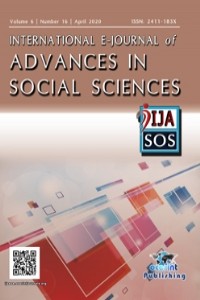Abstract
References
- Bogdanov, Plamen. (2019). Perspectives and development of the the Bulgarian military - educational system. // Security of Central and Eastern Europe Countries 1st International Scientific Conference of Military Academies/Universities, WROCLAW, 20-22.03.2019, organized by General Tadeusz Kosciuszko Military University of Land Forces, Scientific Journal of the Military University of Land Forces, volume 50, no. 1 (187), 2019, p. 73-89, ISSN 2544-7122.
Abstract
Change management is a scientific area that treats all aspects of changes in the global society and contemporary economy. Nowadays, changes have become more universal and essential social and organizational phenomenon. The modern society has brought the imperative of constant change. In order to maintain efficiency, profit and sustainability, all organizations must be proactive, instead of reactive in regards of implementation of changes. It has been discussed many times that today’s changes have become more broad, rapid, unpredictable and severe – however, changes are inevitable part of the life cycles of all organizations. Most institutions have no awareness of or strategic approach to change management at all; they either talk about a change too much (or not at all), make the change, and hope for the best — treating a change as an event instead of an ongoing, everlasting process. The main problem is that changes are not thought about systemically or holistically, as they should be treated. Technology and changes have a huge impact on every aspect of life, with no exception to education. Educational institutions undoubtedly represent significant part of the whole process. Educational institutions are facing big cultural, demographic and especially technological shifts. Today, teachers are challenged with new ways of teaching in the digital age, incorporating technology effectively in the educational settings. In this paper the authors will discuss the matter of change management, digital age teaching and its impact of the educational practices and experiences. In this context, the method used is content analysis of relevant documents, as well as results of previous theoretical and empirical studies of many scientists and researchers in this particular field. The conclusions which have been reached represent a relevant starting point for future action in the framework of educational activities, policies and prospects.
References
- Bogdanov, Plamen. (2019). Perspectives and development of the the Bulgarian military - educational system. // Security of Central and Eastern Europe Countries 1st International Scientific Conference of Military Academies/Universities, WROCLAW, 20-22.03.2019, organized by General Tadeusz Kosciuszko Military University of Land Forces, Scientific Journal of the Military University of Land Forces, volume 50, no. 1 (187), 2019, p. 73-89, ISSN 2544-7122.
Details
| Primary Language | English |
|---|---|
| Journal Section | Research Article |
| Authors | |
| Publication Date | September 10, 2020 |
| Submission Date | April 23, 2020 |
| Published in Issue | Year 2020 Volume: 6 Issue: 16 |
Contact: ijasosjournal@hotmail.com
The IJASOS Journal's site and its metadata are licensed under CC BY
Published and Sponsored by OCERINT International © 2015- 2025

